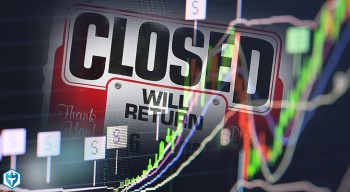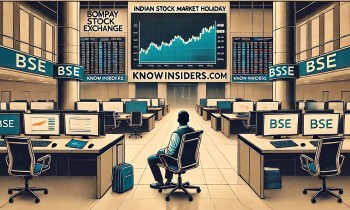Germany Stock Market Holidays 2025: Key Dates, Market Insights & Smart Strategies
 |
| Frankfurt Stock Exchange (FSE) |
German Stock Market Overview: Key Insights into the Frankfurt Stock Exchange (FSE) for 2025
Germany’s stock market stands as a cornerstone of European finance, with the Frankfurt Stock Exchange (FSE) leading as the largest and most influential exchange in the country. Operated by Deutsche Börse Group, the FSE provides a robust trading platform for equities, bonds, derivatives, ETFs, and structured financial products.
At the heart of the market is the DAX 40 Index, which tracks the performance of Germany’s top 40 blue-chip companies by market capitalization and liquidity. Major global corporations such as Volkswagen, Siemens, SAP, BASF, and Deutsche Bank are key components of this benchmark, offering investors exposure to the strength of Germany’s world-renowned industries in automotive, manufacturing, technology, and pharmaceuticals.
The Frankfurt Stock Exchange operates through Xetra, one of the world’s most advanced electronic trading systems, ensuring high speed, transparency, and liquidity. Germany’s strategic location and its status as the largest economy in the Eurozone further reinforce its stock market's global importance.
Renowned for its solid regulatory environment and strong investor protections, the German stock market continues to attract institutional and retail investors from around the world.
This article provides a comprehensive guide to the 2025 German stock market holidays, trading hours, unique market features, and expert tips for navigating one of the most advanced and stable financial markets globally.
Official Holidays for the German Stock Market in 2025
The Frankfurt Stock Exchange observes several public holidays during which trading is suspended. Below is a detailed description of each holiday and its significance:
1. New Year’s Day - January 1, 2025
New Year’s Day is a global celebration marking the beginning of the calendar year. In Germany, it is a public holiday characterized by family gatherings and resolutions. The FSE remains closed on this day, aligning with global financial markets. For investors, it offers a break to assess the past year’s performance and prepare their strategies for the new year. The closure ensures consistent market operations as global liquidity typically reduces during this time.
2. Good Friday - April 18, 2025
Good Friday is a Christian holiday observed to commemorate the crucifixion of Jesus Christ. It is a solemn occasion in Germany, marked by church services and family gatherings. The FSE closes to respect this day of reflection and religious significance. The holiday often coincides with closures in other European markets, providing a synchronized break for global traders. It also marks the end of the first fiscal quarter, offering a natural pause for portfolio evaluations.
3. Easter Monday - April 21, 2025
Easter Monday, following Easter Sunday, is a public holiday in Germany celebrated with family outings and community events. The FSE is closed on this day, aligning with broader European market closures. The extended Easter weekend provides investors with a rare multi-day break to analyze quarterly trends and recalibrate their investment strategies for the months ahead.
4. Labour Day (Tag der Arbeit) - May 1, 2025
Labour Day in Germany celebrates the achievements of workers and the labor movement. It is a national holiday featuring parades and rallies advocating for workers' rights. The FSE observes this day with a market closure, reflecting the significance of the workforce in Germany’s economic success. For traders, this holiday is a moment to pause and reflect on macroeconomic factors influencing market trends.
5. Ascension Day - May 29, 2025
Ascension Day is a Christian holiday commemorating the ascension of Jesus Christ into heaven. It is a public holiday in Germany, celebrated with church services and local traditions. The FSE remains open on this day, but reduced trading volumes are often observed due to the public holiday. Investors may use this time to focus on long-term strategies, as the market operates at a slower pace.
6. Whit Monday (Pfingstmontag) - June 9, 2025
Whit Monday, or Pentecost Monday, celebrates the descent of the Holy Spirit upon the apostles. It is a public holiday in Germany, marked by religious observances and local festivities. The FSE is closed, providing a mid-year pause for market participants. Investors use this break to analyze half-year trends and adjust their portfolios in preparation for the summer trading season.
7. Christmas Day - December 25, 2025
Christmas Day celebrates the birth of Jesus Christ and is one of the most widely observed holidays in Germany. The FSE is closed to allow traders and investors to enjoy the festive season. As a global holiday, the Christmas break aligns the German market with international closures, ensuring liquidity consistency. Investors often use this downtime to review their annual performance and set goals for the upcoming year.
8. Boxing Day (Second Day of Christmas) - December 26, 2025
Boxing Day, or the Second Day of Christmas, is a continuation of the Christmas celebrations in Germany. It is a time for extended family gatherings and relaxation. The FSE remains closed, providing an additional day of rest for market participants. The holiday offers an extended period for traders to reflect on the year’s achievements and challenges before preparing for the next fiscal year.
Trading Hours and Sessions of the German Stock Market
The Frankfurt Stock Exchange operates on the following schedule:
-
Pre-Market Session: 7:30 AM - 9:00 AM CET
An opening phase for placing orders and preparing for trading.
-
Continuous Trading Session: 9:00 AM - 5:30 PM CET
The primary trading hours for equities, bonds, and derivatives.
-
Post-Market Session: 5:30 PM - 8:00 PM CET
Limited trading activities for order matching and settlements.
The FSE is closed on weekends and official public holidays.
Unique Features of the German Stock Market
-
Global Integration
The FSE is deeply connected to international markets, with a high volume of foreign investors participating in German equities.
-
Focus on Industrial and Technological Strengths
Germany’s stock market is heavily influenced by sectors like automotive, manufacturing, and technology, reflecting the country’s economic priorities.
-
Xetra Platform
The Xetra electronic trading system ensures high liquidity and efficiency, making the FSE one of the most advanced exchanges globally.
-
Blue-Chip Dominance
The DAX 40 index, featuring major companies like BMW and Siemens, provides a robust benchmark for investors.
-
Strong ESG Commitment
The FSE supports green bonds and sustainable finance, aligning with global environmental goals.
Advice and Tips for Navigating the German Stock Market
-
Plan Around Holidays
Account for holiday closures to avoid disruptions in trading activities, especially during long weekends.
-
Monitor European Trends
As part of the Eurozone, Germany’s market is influenced by regional economic and political developments.
-
Leverage the DAX 40
Use the DAX as a benchmark for tracking market trends and identifying investment opportunities.
-
Focus on Key Sectors
Germany’s strengths in automotive, technology, and manufacturing provide lucrative investment options.
-
Consider Currency Movements
The Euro’s performance can significantly impact export-driven German companies and stock prices.
Conclusion
The German stock market is a powerhouse of the European economy, offering diverse opportunities for investors. By understanding its holiday schedule, trading hours, and market dynamics, participants can navigate this sophisticated financial ecosystem effectively and strategically.
FAQs
1. When does the German stock market close in 2025 for holidays?
The FSE observes holidays like New Year’s Day, Good Friday, and Christmas. A detailed list is provided above.
2. What are the trading hours of the Frankfurt Stock Exchange?
Normal trading occurs from 9:00 AM to 5:30 PM CET, with pre- and post-market sessions also available.
3. Is the FSE open on weekends?
No, the FSE is closed on Saturdays and Sundays.
4. What makes the German stock market unique?
Its integration with global markets, sectoral diversity, and advanced trading systems like Xetra distinguish the FSE.
5. How can international investors access the German market?
Through global brokerage accounts, ETFs, or by directly investing in companies listed on the Frankfurt Stock Exchange.
 U.S. Stock Market Holidays for 2025: Key Dates, Times U.S. Stock Market Holidays for 2025: Key Dates, Times Understanding the U.S. stock market holidays in 2025 can help you plan your trading strategies effectively. |
 Indian Stock Market Holidays 2025: Key Dates, Unique Features, and Tips Indian Stock Market Holidays 2025: Key Dates, Unique Features, and Tips India’s stock market, represented by major exchanges like the Bombay Stock Exchange (BSE) and the National Stock Exchange (NSE), is an essential pillar of the ... |
 U.K Stock Market Holidays 2025: Key Dates, Unique Features, and Tips U.K Stock Market Holidays 2025: Key Dates, Unique Features, and Tips The UK stock market, anchored by the London Stock Exchange (LSE), plays a pivotal role in global finance. This article provides an overview of the ... |
 French Stock Market Holidays 2025: Key Dates, Unique Features, and Tips French Stock Market Holidays 2025: Key Dates, Unique Features, and Tips The French stock market, centered around Euronext Paris, plays a vital role in the European financial ecosystem. This article provides a detailed overview of the ... |


























